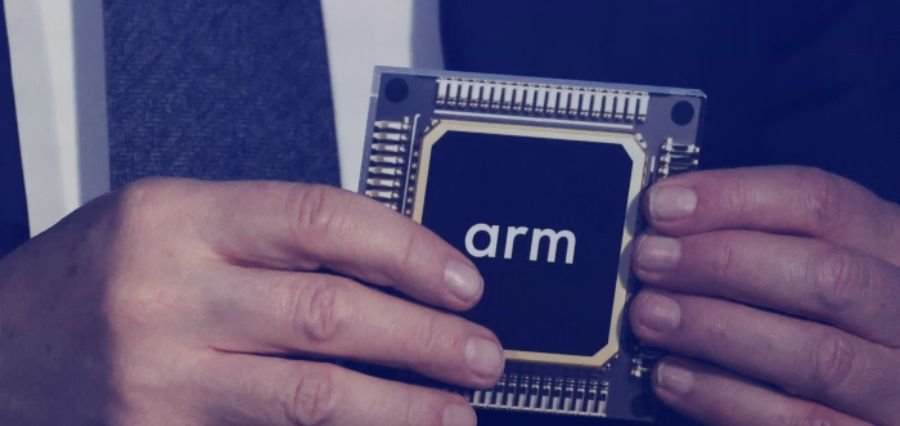Prime Highlights:
- Arm Holdings posted strong Q4 performance, as revenue rose 34% from last year to $1.24 billion.
- Disappointing Q1 revenue guidance, and shares dropped 11%.
Key Facts:
- Adjusted Q4 per-share profit of $0.55 beat the analysts’ forecast of $0.52.
- Key 18% higher royalty revenue and 53% higher licensing revenue were seen.
- Disappointing Q1 guidance, which left Wall Street disappointed, and it sent shivers down the spines of investors.
Key Background :
SoftBank Group-owned UK chip design firm Arm Holdings reported a strong fourth-quarter, beating expectations. Arm’s fourth-quarter revenue was up 34% from a year earlier to $1.24 billion, and adjusted earnings were $0.55 a share, surpassing the predicted $0.52.
Its main growth driver was increased royalty and licensing income. Royalty revenue rose a record $607 million, up 18%, partly as a result of increased uptake of Arm’s leading chip design architecture in smartphones and other consumer electronics. Licensing income, which represents new design contracts with customers, rose 53% to $634 million, evidence that Arm’s intellectual property continues to be sought after, especially as artificial intelligence (AI) and high-performance computing fuel innovation in the sector.
Although this was a very strong quarter, investor enthusiasm was muted by the company’s conservative first-quarter fiscal 2025 guidance. Arm guided Q1 revenue of $1.00 billion to $1.10 billion, which was below the consensus analyst estimate of $1.11 billion. The guidance implies possible near-term softness in demand or timing issues in converting design wins to sales, particularly in growth regions such as China and the largest hyperscalers.
Arm CEO Rene Haas attributed the longer timeframe to expect revenue expansion from AI-related revenues as a justification for the conservative estimate. While the firm is selling increasingly more of its technology to utilize with AI workloads and data centers, new platforms of this kind require several years to achieve volume deployment and start creating royalty revenues.
Shares in Arm, having been highly noticed since they became listed in September 2023 amidst rampant enthusiasm for AI during that time, fell over 11% following after-hours trading after the revelation of earnings. The share decrease suggests that there is a lack of confidence from markets regarding whether Arm can transfer long-term expansion opportunities to temporary monetary gains.
In the future, Arm is still investing in developing AI and edge computing as the forces that will drive licensing dollars in the future but seems to want investors to have more concrete evidence of return sooner.
Read Also : Aruwa Capital Expands Support for Women Led Startups in West Africa




